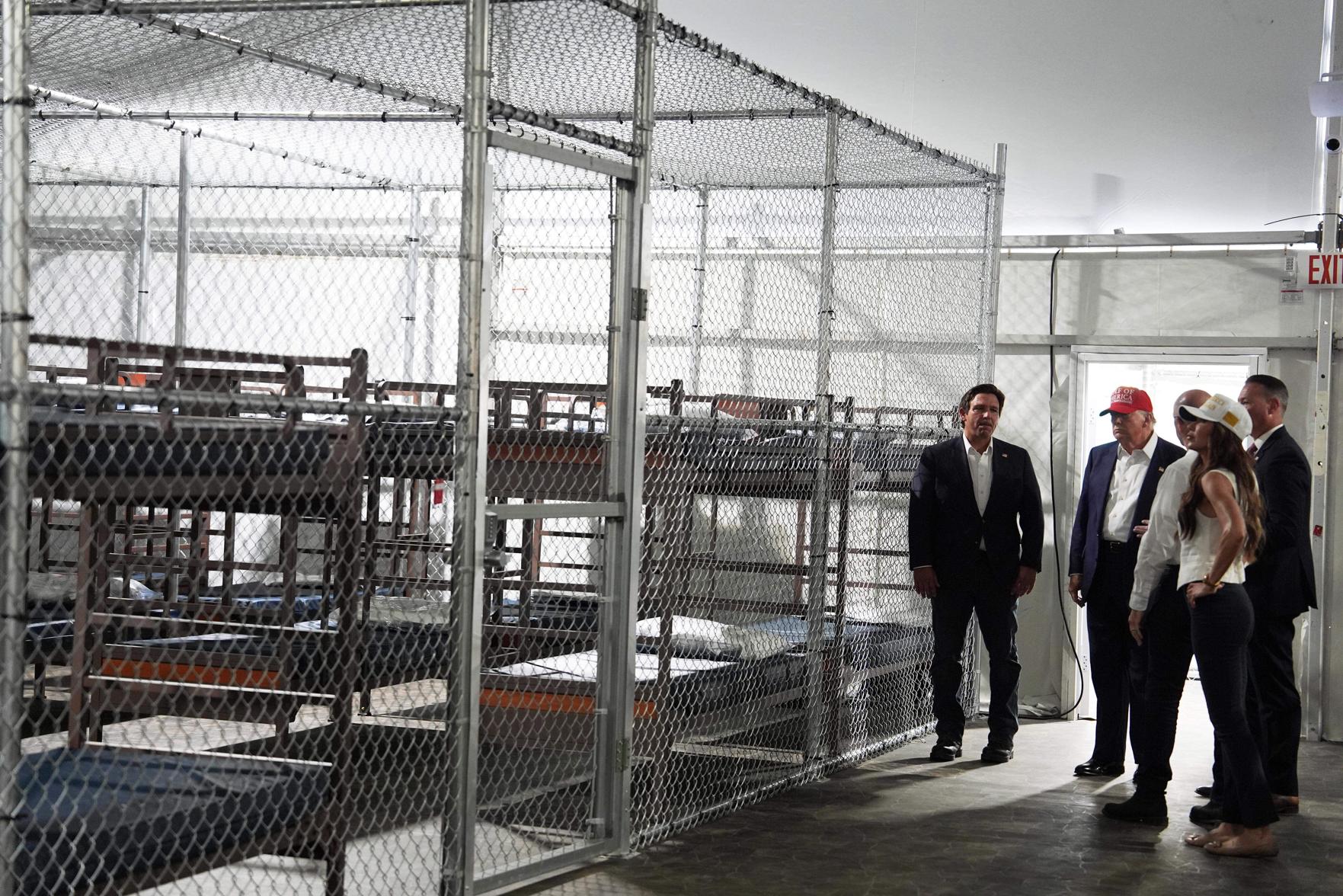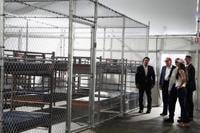Detainees arriving at the immigration detention center in the Florida Everglades known as “Alligator Alcatraz” are given color-coded uniforms and wrist-bands and then segregated based on their criminal history and whether they're considered a flight risk, according to a handbook given to detainees.
The handbook was included in court documents that are part of a lawsuit over whether the detainees are getting proper access to attorneys. The handbook presents strict rules on hygiene and dress, and portrays an environment inside the remote detention center that starkly contrasts with the deplorable conditions detainees described shortly after it opened in July.
The court case is one of three lawsuits filed by environmental and civil rights groups over conditions at the detention center, which was built this summer by the state of Florida and operated by private contractors and state agencies.
A federal judge in Miami ordered in August that the facility must wind down operations within two months, agreeing with environmental groups that the remote airstrip site wasn't given a proper environmental review before it was converted into an immigration detention center. But operations continued after the judge's preliminary injunction was put on hold in early September by an appellate court panel.
President Donald Trump toured the facility in July and suggested it could be a model for future lockups nationwide as his administration pushes to expand the infrastructure needed to increase deportations.
Civil rights groups on Monday asked a federal judge in Fort Myers for an injunction that would stop the facility from holding detainees. They argued that the federal law doesn't allow state agencies or private contractors to carry out immigration detention since that's a function of the Department of Homeland Security alone, and that the facility was set up “outside the normal channels for immigration detention, without regard for multiple limits and safeguards in federal law.”
“As a result, the facility is beset by a host of previously unthinkable problems: People have been held for weeks without removal charges. Detainees who enter the facility disappear from the normal detainee tracking system," they said in a motion for an preliminary injunction. "Physical conditions are atrocious.”
But the handbook submitted last week by the state of Florida in the separate legal-access lawsuit suggests that detainees are warned that guards would enforce strict rules on dress, hygiene and behavior.
Detainees must watch an orientation video upon arrival. They are allowed only to keep prayer books, glasses, dentures, wedding rings and small personal religious items like a rosary, and they wear sandals with their uniform. They’re given soap, shampoo, deodorant, toothpaste and a toothbrush, as well as sheets, a blanket, mattress and towel, according to the handbook.
Detainees' uniform shirts can never be removed in housing units or recreational areas, and they can't place their hands in the waistband of their pants regardless of weather conditions, or they face discipline, according to the handbook.
During regular head counts, detainees aren't allowed to move or talk. If they do, they can be punished, along with everyone in their dorm, with being locked in their housing unit. Breakfasts start at 5:30 a.m. Meals are served in a dining hall where food is forbidden from being removed. Detainees who are segregated from the general population are served in their cells.
Barbering services are available, and detainees are expected to bathe regularly and keep their hair clean. “Personal hygiene is essential,” the handbook said. However, detainees reported in July that toilets sometimes don’t flush, flooding floors with fecal waste, and detainees go days without showering.
The facility has a law library, and detainees can spend up to five hours a week there.
In a separate court filing, an official with a private contractor overseeing how detainees can access lawyers disputed the arguments of civil rights groups that detainees aren’t getting confidential access for attorney-client communications that should be protected. Mark Saunders of The Nakamoto Group said there are four rooms dedicated to private attorney meetings, and facility guards don’t read detainees’ legal documents. Every detainee request for an attorney meeting, either in person or via videoconference, has been granted, he said.
The handbook also informs detainees that the facility has zero tolerance for sexual assault or abuse and has hired a full-time investigator trained in sexual assault investigations. While saying sexual assault is never the victim's fault, the handbook also lists ways detainees can avoid it, such as not accepting gifts or favors from others and appearing confident.
“Many attackers choose victims who look like they won't fight back or who they think is emotionally weak,” the handbook said.
Follow Mike Schneider on the social platform Bluesky: @mikeysid.bsky.social





